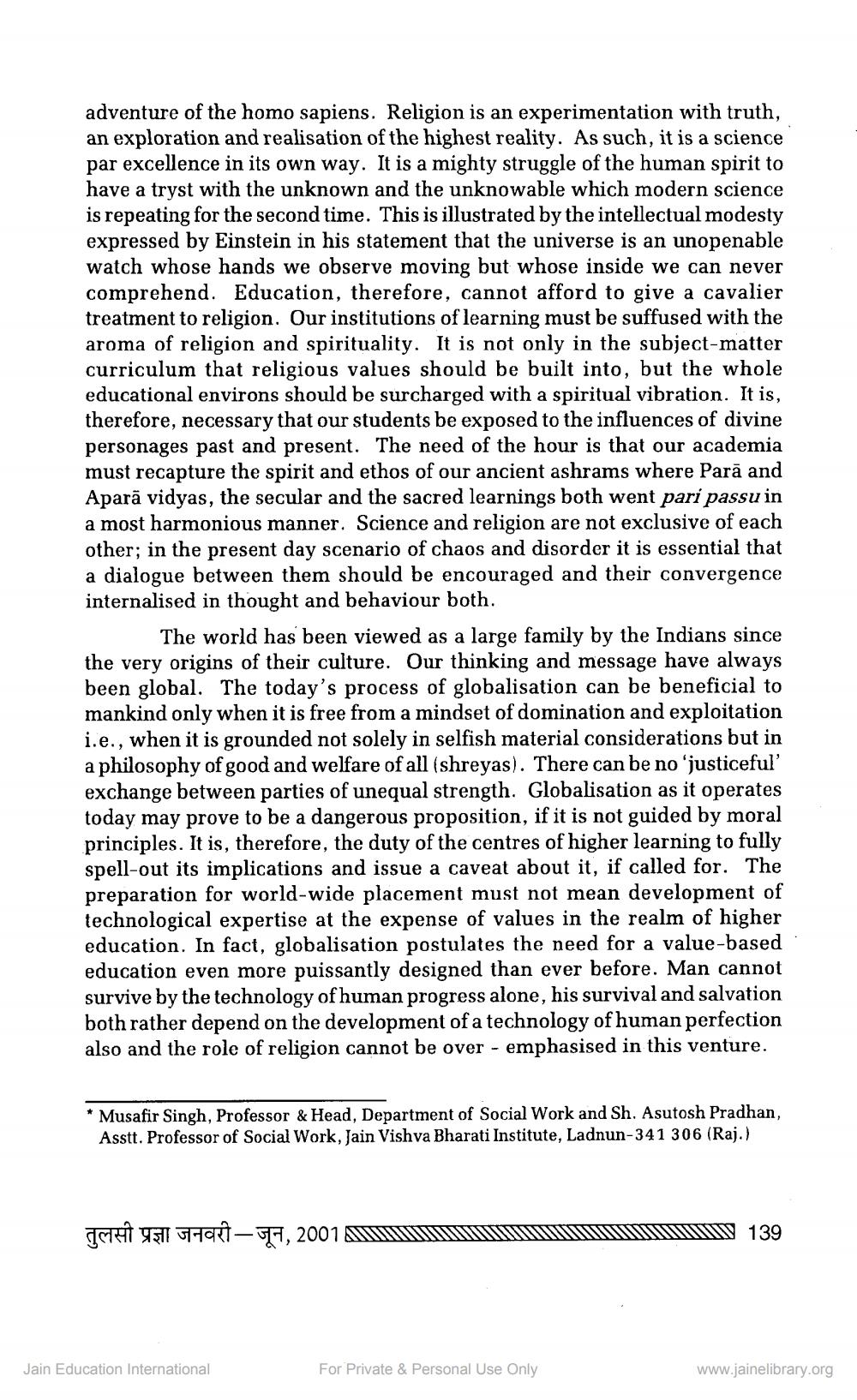________________
adventure of the homo sapiens. Religion is an experimentation with truth, an exploration and realisation of the highest reality. As such, it is a science par excellence in its own way. It is a mighty struggle of the human spirit to have a tryst with the unknown and the unknowable which modern science is repeating for the second time. This is illustrated by the intellectual modesty expressed by Einstein in his statement that the universe is an unopenable watch whose hands we observe moving but whose inside we can never comprehend. Education, therefore, cannot afford to give a cavalier treatment to religion. Our institutions of learning must be suffused with the aroma of religion and spirituality. It is not only in the subject-matter curriculum that religious values should be built into, but the whole educational environs should be surcharged with a spiritual vibration. It is, therefore, necessary that our students be exposed to the influences of divine personages past and present. The need of the hour is that our academia must recapture the spirit and ethos of our ancient ashrams where Parā and Aparā vidyas, the secular and the sacred learnings both went pari passu in a most harmonious manner. Science and religion are not exclusive of each other; in the present day scenario of chaos and disorder it is essential that a dialogue between them should be encouraged and their convergence internalised in thought and behaviour both.
The world has been viewed as a large family by the Indians since the very origins of their culture. Our thinking and message have always been global. The today's process of globalisation can be beneficial to mankind only when it is free from a mindset of domination and exploitation i.e., when it is grounded not solely in selfish material considerations but in a philosophy of good and welfare of all (shreyas). There can be no 'justiceful' exchange between parties of unequal strength. Globalisation as it operates today may prove to be a dangerous proposition, if it is not guided by moral principles. It is, therefore, the duty of the centres of higher learning to fully spell-out its implications and issue a caveat about it, if called for. The preparation for world-wide placement must not mean development of technological expertise at the expense of values in the realm of higher education. In fact, globalisation postulates the need for a value-based education even more puissantly designed than ever before. Man cannot survive by the technology of human progress alone, his survival and salvation both rather depend on the development of a technology of human perfection also and the role of religion cannot be over - emphasised in this venture.
* Musafir Singh, Professor & Head, Department of Social Work and Sh. Asutosh Pradhan, Asstt. Professor of Social Work, Jain Vishva Bharati Institute, Ladnun-341 306 (Raj.)
get
l 4921-77, 2001 M
W
WV 139
Jain Education International
For Private & Personal Use Only
www.jainelibrary.org




